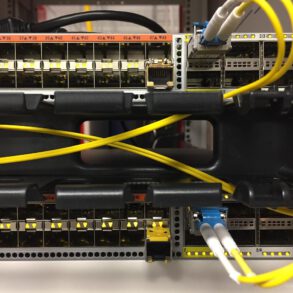What Is a Wireless Network?: Five Questions to Start With
What is a wireless network? How is it different from a wired network? And what are the business benefits of a wireless network? The following overview answers basic questions such as What is a wireless network?, so you can decide if one is right for your business.
What Is a Wireless Network?
What is a wireless network, exactly?
A wireless local-area network (LAN) uses radio waves to connect devices such as laptops to the Internet and to your business network and its applications. When you connect a laptop to a WiFi hotspot at a cafe, hotel, airport lounge, or other public place, you’re connecting to that business’s wireless network.
What Is a Wireless Network vs. a Wired Network?
A wired network connects devices to the Internet or other network using cables. The most common wired networks use cables connected to Ethernet ports on the network router on one end and to a computer or other device on the cable’s opposite end.
What Is a Wireless Network? Catching Up with Wired Networks
In the past, some believed wired networks were faster and more secure than wireless networks. But continual enhancements to wireless networking standards and technologies have eroded those speed and security differences.
What Is a Wireless Network?: The Benefits
Small businesses can experience many benefits from a wireless network, including:
- Convenience. Access your network resources from any location within your wireless network’s coverage area or from any WiFi hotspot.
- Mobility. You’re no longer tied to your desk, as you were with a wired connection. You and your employees can go online in conference room meetings, for example.
- Productivity. Wireless access to the Internet and to your company’s key applications and resources helps your staff get the job done and encourages collaboration.
- Easy setup. You don’t have to string cables, so installation can be quick and cost-effective.
- Expandable. You can easily expand wireless networks with existing equipment, while a wired network might require additional wiring.
- Security. Advances in wireless networks provide robust security protections.
- Cost. Because wireless networks eliminate or reduce wiring costs, they can cost less to operate than wired networks.




